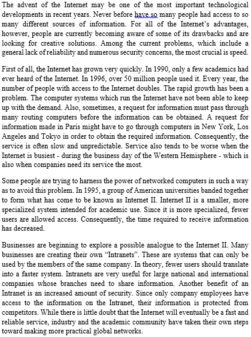Read the passage
It's half past seven in the evening.All the people in Nam's family are in the living room now.His father likes reading newspapers but now he is watching the news on TV.His mother usally teaches Nam and his sister English but at present she is making a cake in the kitchen.Nam and his sister are playing chess.Thay all anjoy a happy Saturday evening.
*Write True(T) or Fales(F)
1. ......It's seven thirty in the evening.
2......His father enjoys reading newspapers
3. ......At present his mother is eating a cake in the kitchen
4. .......Nam and his sister enjoy a happy Sunday evening
* Ansew the question
1.What is Nam's father doing
2.Are Nam and his sister doing their homework?
Hãy nhập câu hỏi của bạn vào đây, nếu là tài khoản VIP, bạn sẽ được ưu tiên trả lời.

1. A. d’ like B. interested in C. also D. will
2. A. because B. though C. that D. when
3. A. in B. of C. on D. with
4. A. all B. one C. none D. not
5. A. means B. shows C. proves D. tells
6. A. locality B. small C. area D. local
7. A. in B. at C. on D. with
8. A. chance B. holiday C. time D. choice

Dear Elisa,
Thanks very much for your email. It was fun to read about the places you find interesting.
I (1) .................... to go to museums in my free time. There are several museums in my city, but I like the Museum of Fine Arts the most. I love art, so (2) .................... I have free time, I go to this museum. There’s a great mix (3) .................... art from across the eras, including some really impressive modern Vietnamese paintings. What I especially like about the museum is that (4) .................... of its galleries have an introduction in Vietnamese, English, and French. It (5) .................... that I can learn lots of English while enjoying the art works.
Another place of interest that I love is the (6) .................... park. It’s near my house, so I go there almost every day. Sometimes I go for a walk around the park with my mother. Sometimes I choose a beautiful place in it to sit and draw some sketches. And sometimes I just sit (7) .................... a bench, doing nothing, just watching people passing by. It’s really relaxing.
I hope someday I’ll have a(n) (8) .................... to visit your National Portrait Gallery and Hyde Park.
Sincerely,
Tom
1. A. d’ like B. interested in C. also D. will
2. A. because B. though C. that D. when
3. A. in B. of C. on D. with
4. A. all B. one C. none D. not
5. A. means B. shows C. proves D. tells
6. A. locality B. small C. area D. local
7. A. in B. at C. on D. with
8. A. chance B. holiday C. time D. choice
Ex5: Choose the best option to complete the sentences.
1. .................... Pelly was tired, he went to bed.
A. Because B. Because of
2. He passed the exam .................... he had a good teacher.
A. Because B. Because of
3. We stayed in .................... the rain.
A. Because B. Because of
4. He was able to go to university .................... his aunt’s help.
A. Because B. Because of
5. The price of oranges is high .................... frost damage.
A. Because B. Because of
6. I went to see the play, .................... it had good reviews.
A. Because B. Because of
7. I enjoy the course .................... the professor is a good teacher.
A. Because B. Because of
8. We all felt tired .................... the hot weather.
A. Because B. Because of
9. I left home early, .................... I had to do several errands.
A. Because B. Because of
10. .................... their interest in comets, they decided to study astronomy.
A. Because B. Because of

1. When does the Lunar New Year take place?
……………………It usually takes place between the end of January and the beginning of February.………………………………………………………………..
2. When do the Vietnamese hold their family reunion dinner?
…………………………… They hold it on the New Year’s Eve…………………………………………………………..
3. What do the Vietnamese children usually do at Tet?
……………………… They usually wear new clothes, visit their grandparents and relatives with their parents………………………………………………………………..
4. What are the children given at Tet?
……………………… They are often given lucky money in red envelopes………………………………………………………………..
5. How do the children feel?
……………………………… They feel very happy………………………………………………………..
1.It usually takes place between the end of January and the beginning of February.
2.on the New Year’s Eve.
3.The children usually wear new clothes and go with their parents to visit their grandparents and relatives.
4.lucky money
5.They are very happy.

Đáp án: A
Thông tin: A supermarket often provides a more comfortable environment for shopping than a market that is usually wet and dirty.
Dịch: Một siêu thị thường cung cấp một môi trường mua sắm thoải mái hơn so với một thị trường thường ẩm ướt và bẩn thỉu.

Read the passage
It's half past seven in the evening.All the people in Nam's family are in the living room now.His father likes reading newspapers but now he is watching the news on TV.His mother usally teaches Nam and his sister English but at present she is making a cake in the kitchen.Nam and his sister are playing chess.Thay all anjoy a happy Saturday evening.
*Write True(T) or Fales(F)
1. ...T...It's seven thirty in the evening.
2...T...His father enjoys reading newspapers
3. ...F...At present his mother is eating a cake in the kitchen
4. ....T...Nam and his sister enjoy a happy Sunday evening
* Ansew the question
1.What is Nam's father doing
=> He is watching the news on TV.
2.Are Nam and his sister doing their homework?
=> No, they aren't.
*
1. T
2. T
3.F
4.F
*
1. Nam's father is watching the news on TV
2. No